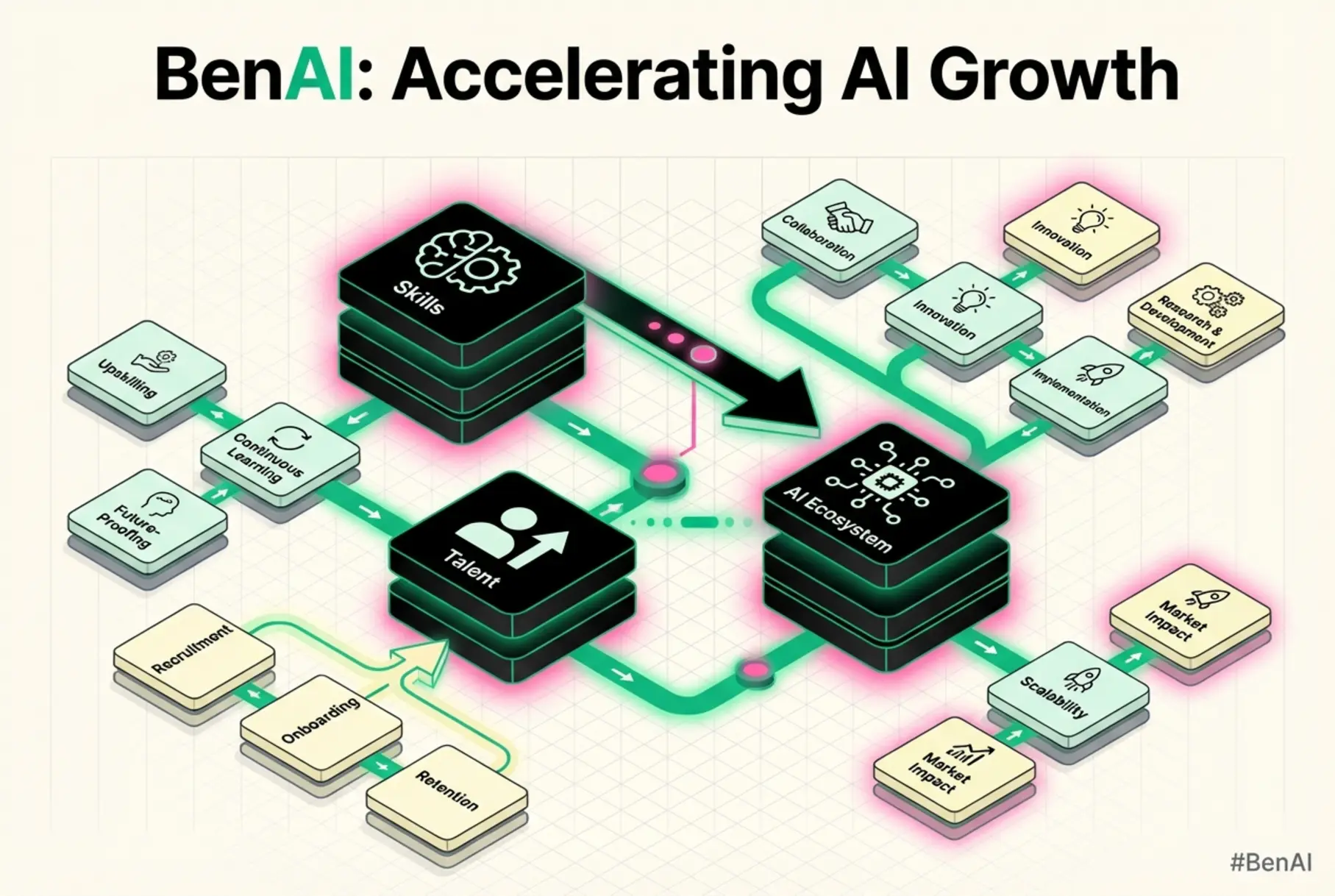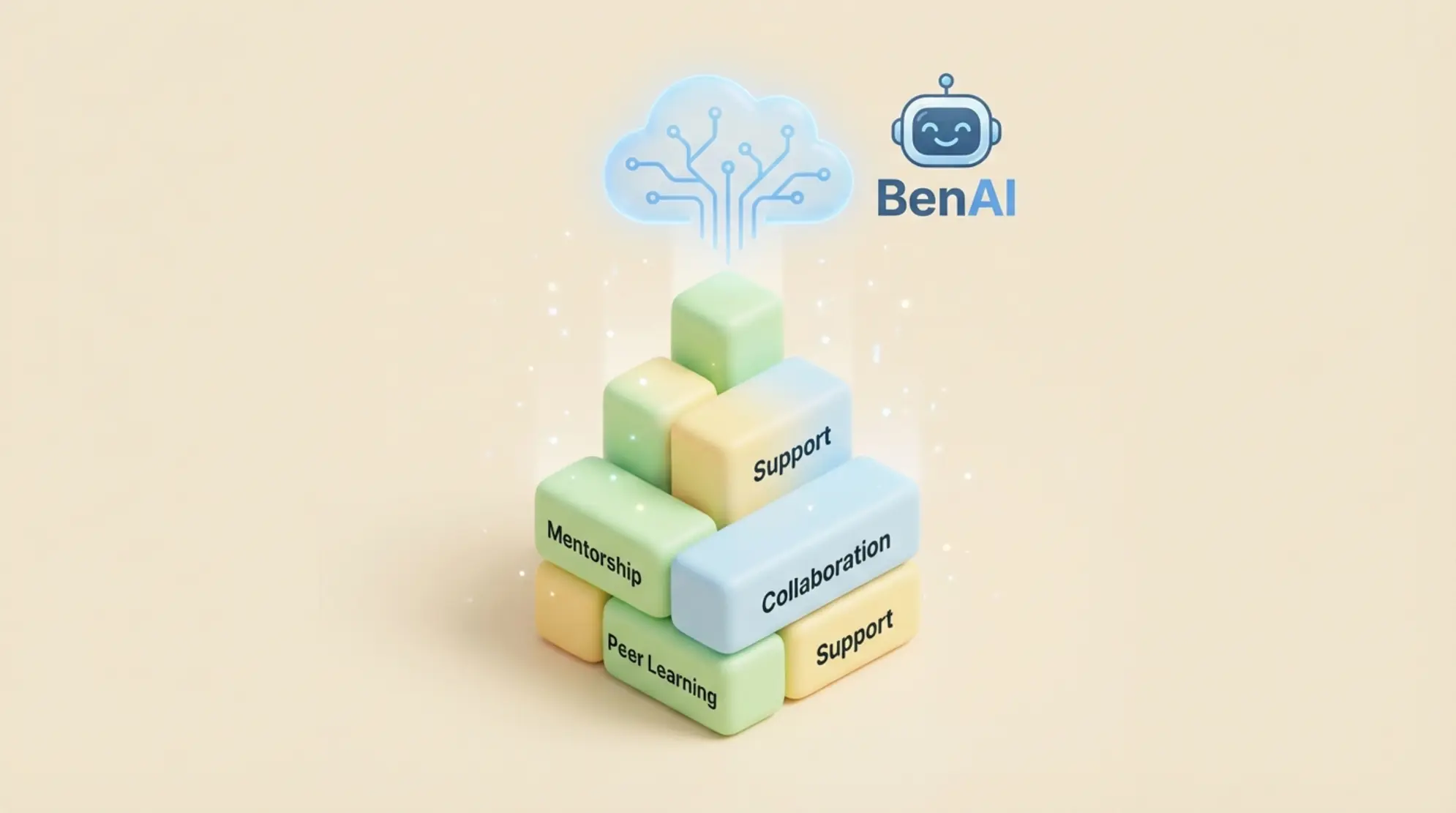Unlocking Optimal User Experience: The Definitive Guide to Mobile-Friendliness Testing with Artificial Intelligence
Mobile-friendliness testing with Artificial Intelligence (AI) represents a transformative approach to evaluating and enhancing mobile user experiences. This advanced method leverages AI and machine learning to automate the intricate processes of identifying, analyzing, and resolving responsiveness issues across diverse mobile devices and operating systems. Decision-makers facing the complexities of an expanding mobile ecosystem utilize AI to achieve consistent performance, improved accessibility, and ultimately, higher user satisfaction for their digital products.
The shift towards AI-powered testing is driven by the explosive growth of mobile internet usage and the escalating complexity of mobile applications, necessitating solutions that surpass traditional manual testing limitations. Automated AI testing eliminates the inefficiencies inherent in human-led audits, accurately anticipates software bugs, and significantly elevates user experience across a vast device ecosystem. Businesses seeking to maintain a competitive edge prioritize robust mobile presence, directly influencing user engagement, conversion rates, and overall brand perception.

What is Mobile-Friendliness Testing with Artificial Intelligence?
Mobile-friendliness testing with Artificial Intelligence involves using machine learning algorithms and computational intelligence to autonomously assess and validate the responsiveness, usability, and compatibility of websites and applications on mobile devices. This methodology prioritizes a seamless user experience, adapting content and functionality across varied screen sizes, input methods, and network conditions. AI systems analyze user interface elements, navigation pathways, and overall performance metrics to ensure an optimal digital interaction for every mobile visitor.
The core definition of semantic SEO centers on content optimization that prioritizes topical comprehensiveness and user intent over mere keyword density. Artificial Intelligence enhances traditional mobile testing by automating test case generation, predicting potential issues, and offering insights into design flaws. AI-driven platforms evaluate key metrics such as tap target size, viewport configuration, and text legibility, ensuring digital assets adhere to established mobile web standards. These platforms often incorporate sophisticated machine learning models to identify patterns in user interaction and predict areas of friction or poor performance.
Why is AI Essential for Mobile-Friendliness Testing?
Artificial Intelligence proves essential for mobile-friendliness testing due to the increasing fragmentation of the mobile device landscape and the complex demands of modern user expectations. Manual testing methods struggle to cover the myriad of device models, operating system versions, and screen resolutions, creating significant gaps in quality assurance. AI algorithms efficiently scale testing efforts, performing comprehensive checks across thousands of virtual and real devices simultaneously, minimizing human error and accelerating feedback cycles.
The mobile usability testing market, valued at $1.3 billion in 2023, is projected to reach $3.4 billion by 2032, according to Dataintelo. This substantial growth underscores the critical need for advanced testing solutions. Artificial Intelligence platforms streamline the identification of non-responsive layouts, broken functionalities, and accessibility barriers (small text, unclear call-to-actions, poor color contrast). Furthermore, AI-powered self-healing test scripts reduce maintenance efforts and accelerate Continuous Integration/Continuous Delivery (CI/CD) pipelines, as highlighted by Accelq. This automation capacity allows development teams to focus on innovation rather than repetitive testing tasks.

How Does AI Enhance Mobile-Friendliness Testing Workflows?
Artificial Intelligence enhances mobile-friendliness testing workflows by introducing automation, predictive analytics, and continuous learning capabilities throughout the software development lifecycle. These advanced functionalities include automated test script generation, intelligent bug prediction, and self-healing test environments. AI systems analyze vast datasets of user interactions and performance metrics to identify patterns and anomalies that indicate potential usability issues. This proactive approach allows development teams to address problems before they impact end-users, improving both product quality and deployment speed.
AI integration facilitates a structured, repeatable process for validating mobile experiences. Key stages of AI-enhanced testing include:
- Automated Page Crawling and Device Simulation: AI bots intelligently navigate web pages and applications, simulating diverse mobile devices, screen sizes, and browser environments. This initial step quickly identifies basic rendering and layout issues.
- Test Case Generation: Machine learning algorithms generate comprehensive test cases based on historical data, design specifications, and anticipated user behavior. This reduces the manual effort required to create and maintain extensive test suites.
- Issue Detection and Analysis: AI models analyze visual elements (buttons, text fields, images), interactive components (menus, forms, gestures), and network performance to pinpoint mobile-friendliness defects such as slow loading times, unresponsive buttons, or misaligned content.
- Integration with CI/CD Pipelines: AI testing tools seamlessly integrate into existing Continuous Integration/Continuous Delivery workflows, providing real-time feedback to developers. This ensures that every code commit is automatically validated for mobile compatibility.
- Self-Healing Scripts: Advanced AI models automatically update and repair test scripts when UI elements change, preventing test failures caused by minor design modifications. This capability significantly reduces test maintenance overhead.
- Real-Time Reporting and Insights: AI platforms generate detailed reports with actionable insights, prioritizing issues based on severity and potential user impact. This data empowers teams to make informed decisions about remediation efforts.
According to a Stanford AI Index Report, 78% of organizations utilized AI in 2024, a significant increase from 55% in 2023, reflecting a broader trend of AI adoption in critical business functions, including quality assurance. This widespread adoption enables companies to deploy more robust, user-centric mobile applications faster and more reliably.

Leading AI-Powered Mobile Testing Platforms
Several leading AI-powered mobile testing platforms offer specialized features and functionalities to address the unique challenges of mobile-friendliness and user experience validation. These platforms provide diverse solutions, ranging from comprehensive test automation suites to real device cloud environments, catering to various organizational needs and technical complexities. Evaluating these tools involves assessing their capabilities in automated script generation, bug prediction, device coverage, and integration with existing development workflows.
Here are prominent examples of AI testing platforms:
- Accelq: Accelq provides a comprehensive AI testing guide and explains the roles of machine learning and natural language processing in automation. This platform excels in self-healing scripts and AI orchestration, integrating both manual and AI testing flows effectively. The tool showcases bridge theory and practice, offering extensive tool support and strong internal linkages to related testing guides.
- BrowserStack: BrowserStack maintains strong trust signals from over 50,000 customers and provides extensive testing breadth, including cross-browser and device compatibility, alongside powerful debugging capabilities. This platform is primarily tool-focused, offering seamless transitions from awareness to action with free trials and practical integration details.
- LambdaTest: LambdaTest offers real device cloud testing with wide device viewport coverage and detailed feature breakdowns for usage. This platform is focused on tool promotion, offering granular testing options and real-user scenario focus for its product UI.
- SERanking: SERanking provides a free tool with a clear user interface and covers core technical evaluation criteria such as tap target size, viewport, and text size. This platform is mostly focused on a tool interface, offering immediate tool usage with accompanying technical best practices.
- Autopagerank: Autopagerank emphasizes alternatives, SEO integration, and the importance of mobile user experience and user behavior analytics. This platform focuses more on SEO implications than technical AI depth in mobile testing, presenting strong framing around business impact and practical comparisons.
These platforms demonstrate varied strengths, from deep conceptual explanations to practical, hands-on tool usage. Decision-makers assess factors such as platform scalability, ease of use, reporting granularity, and integration capabilities to select the most suitable solution for their mobile testing needs. Many offer features like no-code AI technical SEO automation, allowing even non-technical teams to contribute to mobile optimization.
Addressing Overlooked Challenges in AI Mobile Testing
While Artificial Intelligence significantly enhances mobile testing, several overlooked challenges exist, including AI model retraining on mobile, adaptive learning in diverse environments, and deep integration into DevOps pipelines. Addressing these complexities is crucial for maximizing the effectiveness and longevity of AI-driven testing solutions. These challenges require strategic planning and sophisticated technical implementations to ensure AI models remain accurate and relevant as mobile technologies evolve.
How does AI model retraining on mobile ensure accuracy?
AI model retraining on mobile ensures accuracy by continuously updating the underlying machine learning algorithms with new data, ensuring they adapt to evolving user interfaces, operating system updates, and design patterns. Mobile applications frequently receive updates that introduce new features or change existing UI elements, which can render older AI models less effective. Regular retraining with fresh data sets, including diverse device configurations and user interaction logs, maintains the model's ability to accurately identify issues and predict behaviors. This proactive adaptation is vital for keeping testing automated and reliable.
What adaptive learning techniques apply to diverse mobile environments?
Adaptive learning techniques apply to diverse mobile environments by enabling AI models to dynamically adjust their testing strategies based on specific device characteristics, network conditions, and regional user behaviors. Instead of employing a one-size-fits-all approach, adaptive models learn from the unique attributes of various mobile platforms (iOS, Android), screen resolutions (smartphone, tablet), and connectivity speeds (5G, Wi-Fi). This allows the AI to prioritize relevant tests and simulate real-world scenarios more accurately, predicting issues that might only appear under certain environmental constraints, for instance, a slow network causing UI elements to overlap. The integration of AI and SEO automation further leverages this adaptive intelligence for broader digital strategy.
How can AI outputs be deeply integrated into DevOps pipelines?
AI outputs integrate deeply into DevOps pipelines by automating the interpretation of test results and triggering subsequent actions, such as bug reporting, code rollback, or deployment approval. Rather than merely presenting test failures, AI systems can automatically create detailed bug tickets in issue trackers (Jira, Asana), assign them to relevant developers, and even suggest potential fixes based on historical data. This direct integration transforms test feedback into actionable steps, minimizing manual intervention and accelerating the CI/CD cycle. Tools that facilitate AI schema markup automation also streamline the downstream process of optimizing identified content issues.
The Strategic Impact of AI-Driven Mobile-Friendliness for SEO and UX
AI-driven mobile-friendliness significantly impacts both Search Engine Optimization (SEO) and user experience (UX) by ensuring digital assets are discoverable, accessible, and enjoyable across all mobile touchpoints. Mobile-first indexing means search engines prioritize the mobile version of a website for ranking, making mobile-friendliness a direct determinant of search visibility. AI-powered testing ensures websites meet technical SEO requirements (fast loading, responsive design, clear navigation) and UX expectations (intuitive interfaces, minimal friction, accessible content), leading to higher rankings and greater user satisfaction.
A well-optimized mobile experience, validated by AI, directly contributes to enhanced engagement metrics (lower bounce rates, longer session durations) and improved conversion rates (sales, sign-ups, lead generation). Users encountering mobile-unfriendly sites quickly abandon them, impacting reputation and business objectives. AI testing helps identify critical issues like slow page loading or non-tappable elements, which directly affect user retention and conversion. This continuous optimization loop, often facilitated by AI SEO content generation and optimization, establishes a robust foundation for sustainable digital growth.
Future Outlook: The Evolution of AI in Mobile Testing
The future outlook for Artificial Intelligence in mobile testing involves an evolution towards more proactive, generative, and analytics-driven capabilities. Advanced AI models will move beyond simply identifying existing issues to predicting potential problems before they manifest and even generating self-correcting code. This forward-looking approach promises to revolutionize how developers approach quality assurance, shifting from reactive bug fixing to proactive quality engineering. The mobile AI market, valued at $19.42 billion in 2024, is projected to grow at a Compound Annual Growth Rate (CAGR) of 28.9% to $84.97 billion by 2030, according to Grand View Research, indicating substantial investment and innovation in this sector.
Key trends driving the evolution of AI in mobile testing include:
- Generative AI for Test Evolution: Generative AI models will autonomously create complex test scenarios and even evolve existing test cases to cover unforeseen edge cases. This capability will drastically expand test coverage and reduce the time spent on manual test script creation, ensuring comprehensive validation even for highly dynamic applications.
- Analytics-Driven Test Prioritization: AI will leverage advanced analytics to prioritize test cases based on predicted user impact, business criticality, and historical bug patterns. This ensures that the most impactful tests are executed first, optimizing resource allocation and accelerating time-to-market for critical updates.
- On-Device Continuous Learning Models: Future AI models will possess the capacity for on-device continuous learning, adapting and refining their testing knowledge directly from real user interactions and device-specific performance data. This enables hyper-personalized testing that reflects genuine user environments, enhancing accuracy and relevance.
- Real-time Cross-Device Orchestration: AI will orchestrate complex testing across a multitude of real and virtual devices in real-time, dynamically allocating resources and adapting test parameters based on live feedback. This ensures robust performance validation across highly fragmented mobile landscapes, further enhancing the capabilities of no-code AI technical SEO automation tools.
Frequently Asked Questions About AI Mobile-Friendliness Testing
Decision-makers frequently inquire about the fundamentals, benefits, challenges, and practical applications of AI in mobile-friendliness testing. Understanding these core questions empowers organizations to make informed choices regarding the adoption and implementation of AI-driven quality assurance strategies. This section addresses common concerns, providing clear, evidence-based answers to guide your evaluation process.
What is AI mobile-friendliness testing?
AI mobile-friendliness testing is an advanced quality assurance method that uses Artificial Intelligence and machine learning algorithms to automatically evaluate and validate how well a website or application performs and displays on various mobile devices. This process identifies issues such as non-responsive layouts, slow loading times, and poor navigability. AI models learn from vast datasets to predict and pinpoint usability problems that impact the user experience, often providing immediate feedback to development teams.
How does AI predict mobile usability issues?
AI predicts mobile usability issues by analyzing patterns in historical data, simulating user interactions, and continuously learning from new information. Machine learning models identify common design flaws, performance bottlenecks, and accessibility problems across thousands of test cases and real-world scenarios. For example, AI can detect elements that are too small for touch interaction, content that overflows the screen, or scripts that cause delays in page rendering. This predictive capability allows teams to address potential issues proactively before they reach end-users.
What tools support AI-driven mobile testing?
Many advanced platforms support AI-driven mobile testing, integrating machine learning capabilities into their test automation frameworks. Accelq provides comprehensive AI testing guides and tools for self-healing scripts. BrowserStack and LambdaTest offer real device cloud testing with AI-powered analytics. SERanking offers a free tool for basic mobile-friendliness checks using intelligent algorithms. These tools often feature automated script generation, visual testing with AI, and seamless integration into CI/CD pipelines, enhancing a company's no-code AI technical SEO automation efforts.
What are the challenges and costs of AI in mobile testing?
The challenges and costs of AI in mobile testing include the initial investment in specialized tools, the need for skilled AI professionals, and the continuous effort required for model training and maintenance. Implementing AI testing solutions often involves upfront expenses for software licenses, infrastructure, and integrating new systems into existing workflows. Additionally, AI models require ongoing refinement and retraining to remain accurate with evolving mobile technologies and user behaviors, which incurs operational costs and necessitates expertise in machine learning and data science.
How does real device testing improve accuracy?
Real device testing improves accuracy by validating mobile experiences directly on physical smartphones and tablets, replicating genuine user environments with their specific hardware, software, and network conditions. Emulators or simulators can only approximate real device behavior, occasionally missing subtle performance glitches or compatibility issues unique to actual hardware. Combining AI-driven automation with real device testing platforms ensures comprehensive validation against the diverse mobile ecosystem, capturing nuances that impact user experience, such as battery drain or specific hardware interactions.
How to integrate AI testing in DevOps?
Integrating AI testing in DevOps involves embedding AI-powered tools and processes directly into the Continuous Integration and Continuous Deployment (CI/CD) pipelines, automating quality gates at every stage. This process includes:
- Automated Test Triggering: AI tests automatically run upon code commits or new builds.
- Intelligent Feedback Loops: AI analyzes results and provides immediate, actionable feedback to developers.
- Self-Healing Test Suites: AI automatically adapts tests to UI changes, minimizing maintenance.
- Predictive Analytics: AI predicts potential issues early in the development cycle, preventing defects from escalating.
- Automated Reporting: AI generates detailed reports, highlighting critical issues and performance metrics.
This seamless integration, often leveraging technical SEO automation for broader web optimization, ensures that mobile-friendliness and quality are continuously validated throughout the entire software delivery process, accelerating release cycles while maintaining high standards.
Conclusion: The Imperative of AI in Mobile-Friendliness Testing
Mobile-friendliness testing with Artificial Intelligence stands as an imperative for organizations aiming to deliver superior digital experiences and maintain competitive advantage in the mobile-first era. AI-driven solutions address the inherent complexities of device fragmentation, evolving user expectations, and the demand for rapid, continuous delivery. By automating test generation, predicting usability issues, and enabling self-healing test scripts, AI transforms the quality assurance landscape. This strategic shift ensures optimal performance, accessibility, and user satisfaction across all mobile touchpoints.
Embracing AI in mobile testing facilitates a proactive approach to quality, minimizing manual effort and maximizing accuracy. Decision-makers who integrate these advanced capabilities empower their teams to focus on innovation, accelerate development cycles, and secure higher rankings in search results through enhanced mobile SEO. The future of mobile digital products is inextricably linked to the intelligent automation and continuous adaptation that AI brings to the testing domain.
Join Our Growing AI Business Community
Get access to our AI Automations templates, 1:1 Tech support, 1:1 Solution Engineers, Step-by-step breakdowns and a community of forward-thinking business owners.

Latest Blogs
Explore our latest blog posts and insights.




